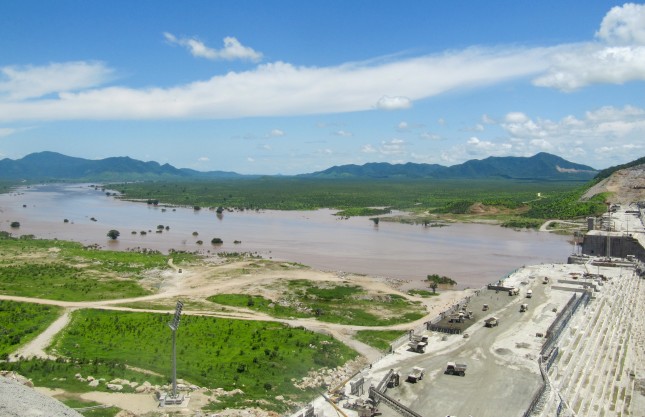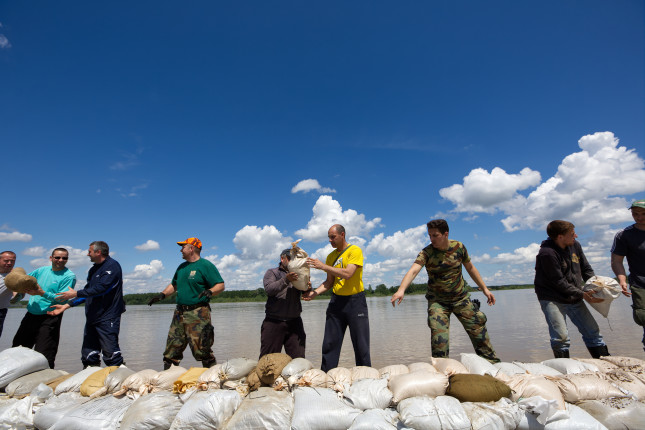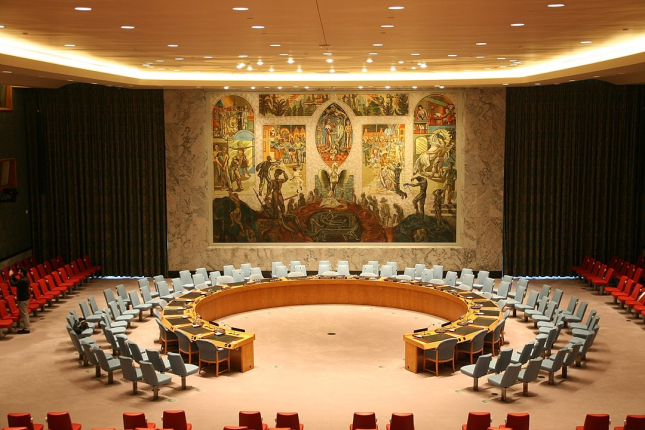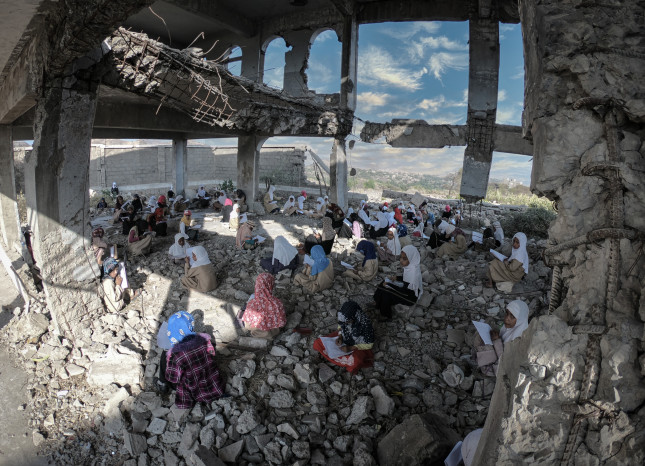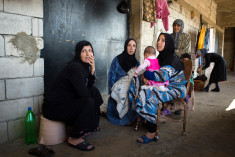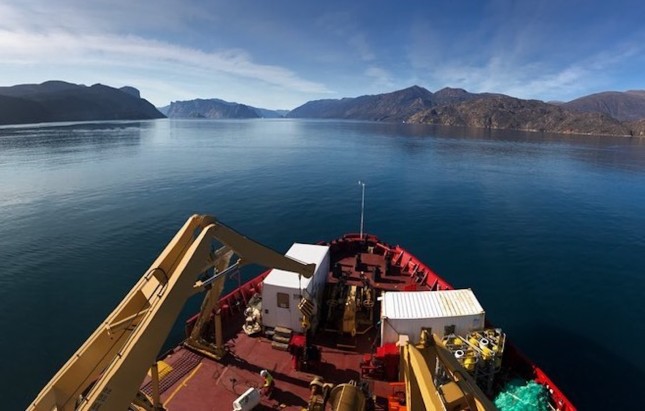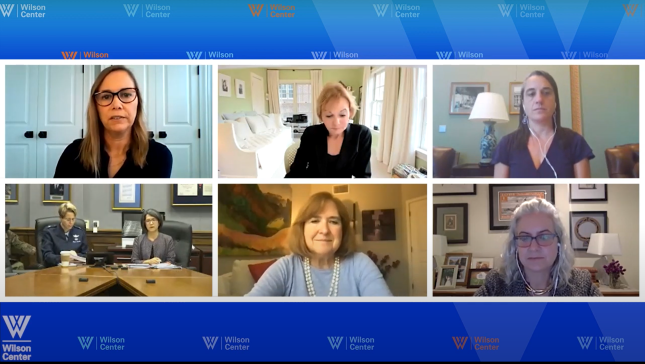-
Hydropolitics in the Russian – Ukrainian Conflict
›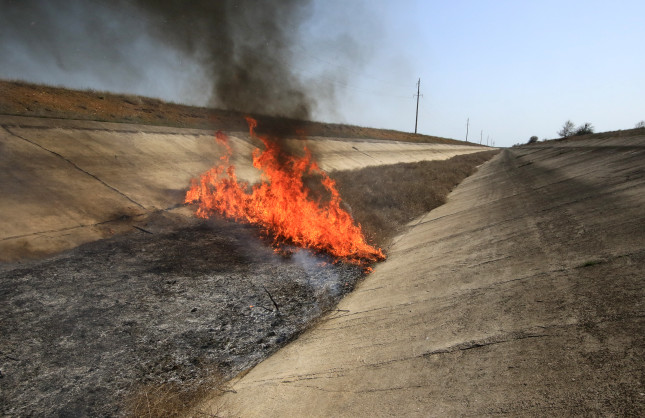
It’s telling that one of the first actions that Russian forces took in their invasion of Ukraine was to blow up a dam on the North Crimean Canal (NCC), allowing water to flow back into Crimea. The current war being waged by Russia in Ukraine has its origins in fractured and contested political history, but there are also key natural resource security questions which often go overlooked. While there are established debates about the extent to which natural resources contribute to conflict, the current conflagration exemplifies a rare use of water as a means of direct leverage in a military standoff. Regardless of the outcome of the conflict, the tensions between Russia and Ukraine over the NCC illustrate the need to consider the role of natural resources—and access to them—in broader diplomatic efforts.
-
When Climate Change Meets Geopolitics
›Deteriorating security in Ethiopia, a country W.E.B. Dubois once described as where “the sunrise of human culture took place,” is deeply concerning. The last few months have seen a dramatic involution for a country that was once a poster child for sustainable development. The conflict between the government and rebel forces in Tigray is not just a matter of regional security, but a significant blow to the world’s efforts to fight climate change.
-
Merging the Environmental and Security Sectors in Climate Risk Responses
›Environmental security notions have evolved over the past 30 years. Once a sub-field of Security and Peace Studies focusing on how environmental issues correlate with modern security theories and policies, the concept is rapidly merging environmental and security sectors. Former Greek Naval Officer in the Hellenic Navy and current environmental security scholar Dimitrios Kantemnidis’ expertise sits at the center of the two merging fields. His military background informs perspectives on growing environmental security risks and potential responses for civilian and military actors.
-
Russia’s ‘Nyet’ Does Not Mean Climate Security Is off the Security Council Agenda
›
On Monday, 13 December, Russia used its veto in the United Nations Security Council to block a thematic resolution on climate change and security put forward by Ireland and Niger. While the draft resolution contained specific actions, its main purpose was symbolic: to put the security implications of climate change firmly on the Security Council’s agenda, much as Resolution 1325 did with women, peace and security.
-
The Changing Face of the Global Humanitarian Crisis: Gender, Climate Change, and Humanitarian Interventions
›
“In a changing world with galloping, growing needs, we can’t keep making the same efforts, issuing the same pleas, and just write bigger and bigger checks and expect different results,” said Samantha Power, Administrator of the United Agency for International Development (USAID), at the launch of the Global Humanitarian Overview, co-hosted by the Center for Strategic and International Studies, USAID, and the UN Office for the Coordination of Humanitarian Affairs (UNOCHA). “We must change the ways we deliver humanitarian assistance to include full participation, design, and leadership from local populations and organizations, from women and marginalized peoples who can help develop truly sustainable solutions to the risks they face in their own communities,” said Power.
-
Accessing Justice for Gender-Based Violence in Humanitarian Settings
›
Gender-based violence (GBV) is a global epidemic rooted in gender inequality and an imbalance in power dynamics. All persons are at risk of violence because of their gender or perceived gender. Women and girls—including transgender women and girls—experience disproportionate gender-based violence, and this violence is even more prevalent among women and girls who have been forcibly displaced.
-
Blue Jeans Contaminating Blue Oceans: The Expanding Microfiber Footprint of Our Clothes
›The Arctic is believed to be a pristine environment, far removed from littered city streets and toxic industrial emissions. I study human pollution and I found it hard to believe that my fellow researchers and I would find so much litter out here. It was even harder to believe that what we uncovered closely resembled the contents of my own closet, over 3,000 kilometers (2,000 miles) away in Toronto. -
The Biden Administration’s Whole of Government Approach to Climate Security
›“Climate change is an increasingly destabilizing force—an accelerating destabilization force—and it’s impacting our operational environment, it’s creating new missions, and our allies and partners are going to be called to respond to these increased demands,” said Brigadier General Rebecca Sonkiss, Deputy Director for Counter Threats and International Cooperation at the Joint Staff J5, at a recent event hosted by the Wilson Center and the Center for Climate and Security. At the event, senior U.S. Government officials reflected on the significance of the Biden administration’s new climate security reports and how climate security is being prioritized and coordinated across defense and development, providing insight into the administration’s whole-of-government approach.
Showing posts from category security.


